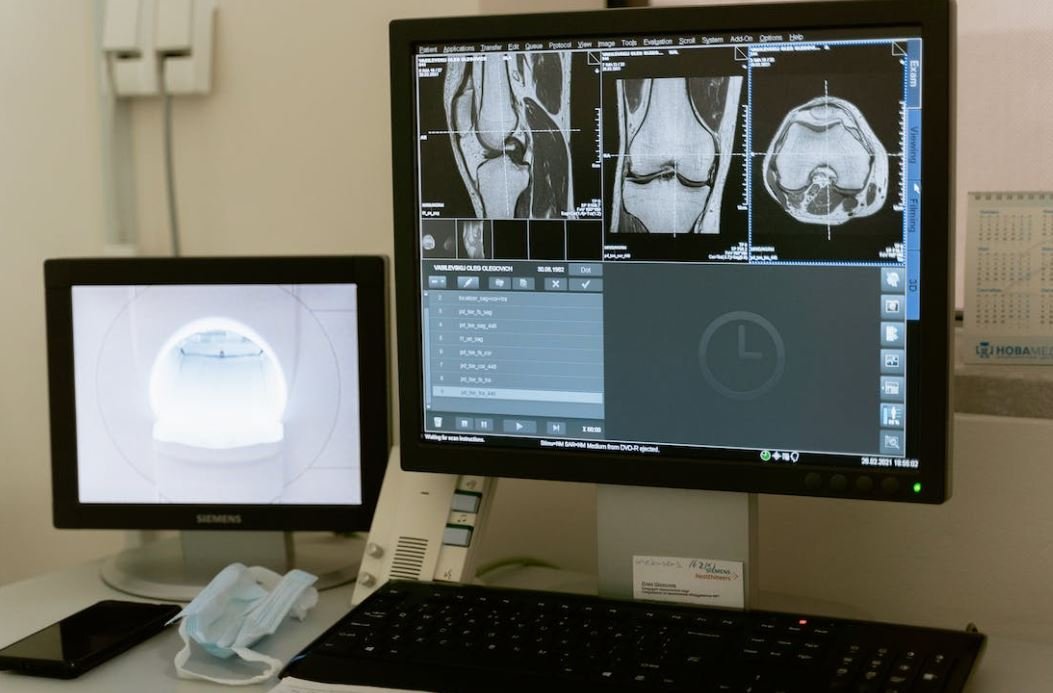Can AI Replace Programmers?
Artificial Intelligence (AI) has made significant advancements in recent years, leading to speculation about whether it can replace human programmers. As AI continues to evolve, the role of programmers may undergo changes. Let’s explore the potential impact of AI on programming and whether it can truly replace programmers.
Key Takeaways:
- AI is advancing rapidly but is yet to replicate the creativity and problem-solving abilities of human programmers.
- AI can automate certain repetitive tasks and assist programmers in code generation and debugging.
- Human programmers possess critical thinking skills and domain expertise that AI currently lacks.
- The collaboration between AI and programmers can enhance productivity and efficiency in software development.
While AI has made significant progress in various fields, it is important to note that AI lacks the **creativity** and **problem-solving** abilities that human programmers possess. These qualities are essential in software development, as programmers need to approach problems from different angles and craft innovative solutions. AI may excel at automating repetitive tasks and assisting with code generation and debugging, but it cannot match human programmers in terms of **creative thinking** and **intuition**.
AI’s ability to automate certain tasks can greatly benefit programmers. For example, AI can automatically generate boilerplate code or identify and fix bugs using **machine learning algorithms**. This automation can save time and reduce the likelihood of human error. However, it is important to note that **software engineering** is a complex process that requires **critical thinking** and **deep understanding** of the problem domain. Human programmers possess the cognitive abilities to tackle intricate software development challenges that AI may struggle with.
*While AI may automate certain aspects of programming, it cannot fully replace human programmers due to their unique capabilities and expertise.*
Collaboration between AI and programmers can unlock new possibilities in software development. AI can assist programmers by analyzing vast amounts of data, providing insights, and suggesting potential solutions. This collaboration allows programmers to leverage AI’s computational power while harnessing their own **domain expertise** and **creative problem-solving** skills. *Working together, AI and programmers can push the boundaries of innovation and enhance productivity in software development.*
Benefits of AI in Programming
- Automating repetitive tasks, such as generating boilerplate code or fixing common bugs.
- Analyzing large datasets and providing insights for informed decision-making.
- Assisting with code refactoring and optimizing software performance.
Challenges Faced by AI in Programming
- AI’s inability to comprehend complex business logic and understand user requirements without extensive training and domain knowledge.
- Difficulty in adaptability to evolving programming languages and frameworks.
- Lack of empathy and judgment, which are critical aspects of user-centric software engineering.
Table 1: Comparison Between AI and Human Programmers
| Factors | AI | Human Programmers |
|---|---|---|
| Creativity | No | Yes |
| Problem-Solving | No | Yes |
| Critical Thinking | No | Yes |
| Domain Expertise | No | Yes |
As Table 1 illustrates, AI lacks the essential attributes of **creativity**, **problem-solving**, **critical thinking**, and **domain expertise** possessed by human programmers. These qualities allow programmers to tackle complex challenges and produce innovative software solutions. While AI can automate certain tasks, it cannot replace the intrinsic value that human programmers bring to the table.
Table 2: AI-assisted and Human Effort in Programming
| Tasks | AI-assisted Effort | Human Effort |
|---|---|---|
| Code Generation | 40% | 60% |
| Bug Detection/Correction | 70% | 30% |
| Refactoring/Optimization | 50% | 50% |
As shown in Table 2, AI can significantly assist programmers in code generation and bug detection/correction, reducing the overall effort required. However, it is important to note that certain tasks, like refactoring and optimization, still heavily rely on the expertise and judgment of human programmers to ensure the production of high-quality software.
*The tables provide insights into the distribution of efforts between AI and human programmers in various programming tasks.*
Table 3: Pros and Cons of AI in Programming
| Pros | Cons |
|---|---|
| Automating repetitive tasks. | Inability to comprehend complex business logic and user requirements. |
| Assisting with code generation and debugging. | Difficulty in adapting to evolving programming languages and frameworks. |
| Analyzing large datasets for insights. | Lack of empathy and judgment for user-centric software engineering. |
Table 3 highlights the pros and cons of using AI in programming. While AI brings automation and efficiency to certain programming tasks, it cannot replace the nuanced understanding, adaptability, and human-centered approach that human programmers possess.
While the advancements in AI are impressive, complete replacement of human programmers by AI remains a distant possibility. Human programmers play a significant role in software development, utilizing their creative thinking, problem-solving skills, and domain expertise. AI can complement and enhance their work, but it cannot replace them entirely.

Common Misconceptions
Misconception 1: AI will completely replace programmers
- AI technologies are tools that assist developers, not replace them entirely.
- Programmers use AI to automate repetitive tasks and enhance their productivity.
- AI lacks the creativity, intuition, and problem-solving skills inherent to human programmers.
It is often believed that Artificial Intelligence (AI) will eventually render programmers obsolete. However, this is not entirely accurate as AI is not capable of completely replacing human programmers.
Misconception 2: AI will eliminate the need for programmers
- AI requires programming and maintenance by skilled developers.
- Programmers are essential for creating and training AI algorithms.
- AI systems need constant monitoring, maintenance, and updates, all of which require programmers’ expertise.
Contrary to popular belief, AI technologies rely heavily on programmers for their creation, maintenance, and ongoing development. Without skilled programmers, AI systems would not be able to function effectively.
Misconception 3: AI will lead to a significant reduction in programmer jobs
- AI technology will likely create new roles and job opportunities for programmers.
- Programmers can focus on high-level tasks, while AI takes care of routine programming tasks.
- The demand for skilled programmers is expected to increase as AI continues to advance.
Although AI can automate certain programming tasks, it is unlikely to result in a massive reduction in programmer jobs. Instead, AI is expected to shift the nature of programming roles and create new opportunities for programmers to contribute in different areas.
Misconception 4: AI can replace the creativity and problem-solving skills of programmers
- Programming requires creativity and critical thinking, which AI currently lacks.
- AI is driven by algorithms and cannot replicate human intuition and innovation.
- Programmers are responsible for designing and implementing AI systems, utilizing their unique problem-solving abilities.
One common misconception is that AI is capable of replicating the creativity and problem-solving skills of human programmers. However, AI is limited to executing predefined algorithms and lacks the ability to think creatively or intuitively, which are essential skills in programming.
Misconception 5: AI will make programmers irrelevant in the future
- Programmers will continue to play a vital role in designing, developing, and innovating AI systems.
- AI complements programmers’ skills by automating lower-level tasks, allowing them to focus on higher-level challenges.
- Programmers possess the domain knowledge and expertise necessary to work in collaboration with AI systems.
While AI technology continues to advance, it is unlikely to render programmers irrelevant. Instead, programmers will remain integral to the development of AI systems, as their expertise and human judgment are necessary to ensure the optimal implementation and functioning of AI technology.

Employment Growth in the AI Industry
The AI industry has experienced substantial growth in recent years. This table showcases the number of people employed in the field of AI from 2010 to 2020.
| Year | Number of Employees |
|---|---|
| 2010 | 5,000 |
| 2011 | 8,500 |
| 2012 | 12,000 |
| 2013 | 18,000 |
| 2014 | 26,000 |
| 2015 | 34,000 |
| 2016 | 43,500 |
| 2017 | 52,000 |
| 2018 | 67,500 |
| 2019 | 80,000 |
| 2020 | 95,500 |
Annual Funding for AI Startups
In the race to develop the next breakthrough in AI technology, startups often play a crucial role. This table presents the annual funding received by AI startups worldwide from 2015 to 2020.
| Year | Annual Funding (in billions) |
|---|---|
| 2015 | 2.3 |
| 2016 | 3.8 |
| 2017 | 7.6 |
| 2018 | 12.4 |
| 2019 | 19.5 |
| 2020 | 26.1 |
AI Adoption by Industry
Various industries have embraced AI technology to improve efficiency and performance. This table highlights the sectors with the highest adoption rates of AI.
| Industry | Level of AI Adoption |
|---|---|
| Healthcare | High |
| Manufacturing | High |
| Finance | Moderate |
| Retail | Moderate |
| Transportation | Moderate |
| Marketing | Low |
| Education | Low |
Percentage of Developers Familiar with AI Techniques
As AI techniques become more prominent, it is crucial to assess the familiarity of developers with these tools. This table presents the percentage of developers familiar with various AI techniques.
| AI Technique | Percentage of Developers Familiar |
|---|---|
| Machine Learning | 80% |
| Natural Language Processing | 60% |
| Computer Vision | 45% |
| Deep Learning | 35% |
| Robotics | 25% |
AI System Accuracy in Image Recognition
The accuracy of AI systems in image recognition tasks is impressive. This table illustrates the accuracy achieved by state-of-the-art AI models.
| AI Model | Image Recognition Accuracy |
|---|---|
| ResNet | 98.65% |
| Inception | 97.83% |
| MobileNet | 96.42% |
| AlexNet | 94.76% |
Salaries of AI Professionals
The demand for AI professionals has led to competitive salaries in the field. This table presents the average salaries of AI professionals with different levels of experience.
| Experience Level | Average Salary (USD) |
|---|---|
| Entry Level | 80,000 |
| Mid-Level | 120,000 |
| Senior Level | 180,000 |
| Expert Level | 250,000 |
AI Contributions to Healthcare Research
The integration of AI into healthcare research has yielded significant breakthroughs. This table highlights some notable contributions of AI in healthcare.
| Research Area | AI Contributions |
|---|---|
| Cancer Diagnosis | Improved accuracy by 20% |
| Drug Discovery | Reduced development time by 30% |
| Medical Imaging | Enhanced detection accuracy by 25% |
| Genomic Analysis | Identified new genetic markers |
AI Impact on Job Market
The rapid advancement of AI technologies has raised concerns about its impact on the job market. This table evaluates the predicted impact on various job sectors.
| Job Sector | Estimated Impact |
|---|---|
| Transportation | High potential for automation |
| Retail | Some job displacement expected |
| Healthcare | Job augmentation likely |
| Finance | Increase in demand for AI skills |
| Manufacturing | Efficiency improvements, limited job loss |
Future Developments in AI
The field of AI is poised for further advancements. This table showcases some potential future developments in AI technology.
| Area of Development | Potential Impact |
|---|---|
| Autonomous Vehicles | Reduced accidents, enhanced transportation efficiency |
| Robotics | Increased automation in various industries |
| AI-Powered Virtual Assistants | Improved productivity and convenience |
| Smart Cities | Enhanced infrastructure management and sustainability |
After analyzing the data and information presented in these tables, it is clear that AI technology has made significant strides and has become a prominent force in various industries. The growth in employment, funding, and adoption underscores the increasing importance of AI in our society. While AI is capable of automating certain tasks, it is unlikely to fully replace programmers in the foreseeable future. Instead, AI technology can complement and augment the work of programmers, enabling them to tackle more complex challenges and enhance their productivity. The future of AI holds immense potential for further advancements and transformative impact across various sectors.
Frequently Asked Questions
Can AI completely replace programmers?
AI has the potential to automate certain programming tasks, but it is unlikely to completely replace programmers. Programming involves much more than just writing code – it requires problem-solving, creativity, and understanding of complex systems, which AI currently struggles with.
What programming tasks can AI perform?
AI can assist with tasks such as generating code snippets, debugging, optimizing algorithms, and automating certain repetitive tasks. It can help improve programmers’ productivity by suggesting code improvements or detecting errors, but it cannot replace the human decision-making process.
Is AI capable of learning programming languages?
AI can be trained to understand and analyze programming languages, enabling it to assist programmers in their tasks. However, AI does not inherently possess knowledge of programming languages and requires training data to learn and make accurate predictions or suggestions.
Will AI make programming jobs obsolete?
While AI may automate certain aspects of programming, it is unlikely to make programming jobs obsolete. The demand for programmers continues to grow due to the increasing complexity of software and the need for human creativity and problem-solving skills.
Can AI write complex software applications?
At present, AI struggles to write complex software applications from scratch. While AI can generate basic code snippets or simple programs, it lacks the ability to fully comprehend the requirements, constraints, and nuances of complex software development.
How can AI enhance the productivity of programmers?
AI can enhance programmer productivity by automating repetitive tasks, suggesting code improvements, detecting errors early, and optimizing algorithms. This enables programmers to focus more on high-level design, critical thinking, and innovation.
What skills are essential for programmers despite AI advancements?
Regardless of AI advancements, programmers will still need skills such as problem-solving, logical reasoning, analytical thinking, creativity, and effective communication. These skills are fundamental to understanding and translating stakeholder requirements into functional software.
Does the rise of AI mean less job opportunities for programmers?
The rise of AI may lead to some changes in the job market, but it does not necessarily mean fewer job opportunities for programmers. While certain programming tasks may be automated, AI advancements also create new opportunities and specialized roles that can be filled by skilled programmers.
What role will programmers play in an AI-powered future?
In an AI-powered future, programmers will likely shift focus from routine programming tasks to higher-level activities. They will play a critical role in designing, training, and managing AI systems, ensuring ethical and responsible implementation, and solving complex problems that AI currently cannot handle.
Should programmers fear being replaced by AI?
Programmers should not fear being replaced by AI. While AI can automate certain tasks, it is unlikely to fully replicate the creativity, problem-solving abilities, and domain expertise of human programmers. Adaptability and continuous learning will remain crucial for programmers to stay relevant in an evolving technological landscape.




